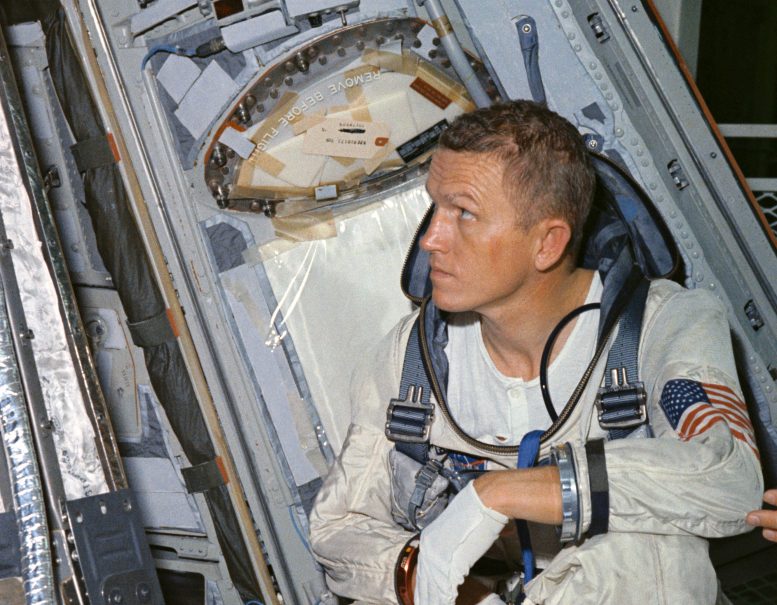
Astronaut Frank Borman, command pilot for the Gemini-7 spaceflight, looks over the Gemini-7 spacecraft during weight and balance tests. The tests are conducted in the Pyrotechnic Installation Building, Merritt Island, Kennedy Space Center, as part of preflight preparation. Credit: NASA
Colonel Frank Borman, a distinguished astronaut and aeronautical engineer, passed away on November 7, 2023, in Billings, Montana. He was 95 years old. Born on March 14, 1928, in Gary, Indiana, Borman’s fascination with flight propelled him to a storied career in the United States Air Force and subsequently, NASA.
A graduate of the United States Military Academy at West Point, Borman later earned a Master of Science degree in Aeronautical Engineering from the California Institute of Technology. His military service was marked by his exemplary skills as a fighter pilot and his commitment to the nation.
Borman’s legacy is most notably tied to his contributions to the U.S. space program. He was selected as an astronaut by NASA in 1962, becoming a prominent figure in the human spaceflight initiative. His most famous mission was as the commander of Apollo 8, the first manned spacecraft to leave Earth’s orbit, reach the Moon, orbit it, and return safely to Earth. This historic mission in December 1968 marked a significant milestone in the space race, offering humanity its first view of Earth as a whole planet and bringing the world closer to the Moon landing.
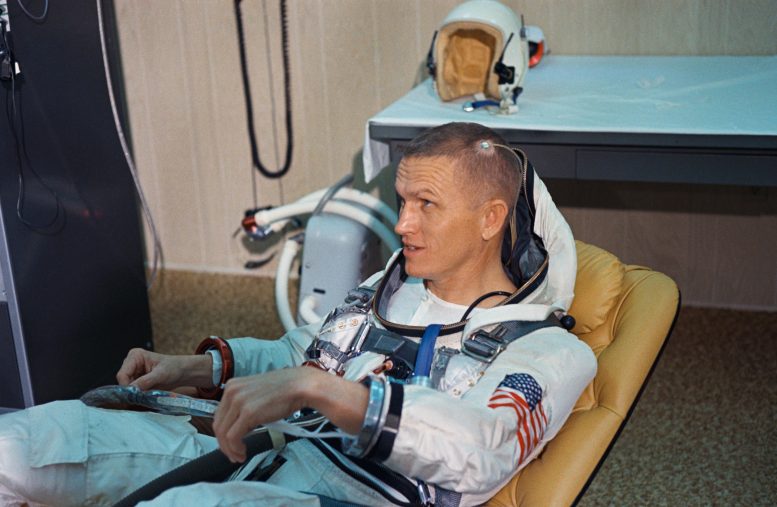
Astronaut Frank Borman, command pilot of the National Aeronautics and Space Administration’s (NASA) Gemini-7 spaceflight, undergoes suiting up operations in the Launch Complex 16 suiting trailer. A medical biosenser is attached to his scalp. Credit: NASA
Beyond Apollo 8, Borman’s career at NASA included participation in the Gemini program, where he served as the command pilot of Gemini 7. This mission set an endurance record for the longest manned space flight and was pivotal in understanding space travel’s impact on the human body.
After retiring from NASA and the Air Force in 1970, Borman embarked on a successful career in the private sector. He held leadership positions at several corporations, including Eastern Air Lines, where he served as CEO. His business acumen and leadership were as commendable as his contributions to aerospace.
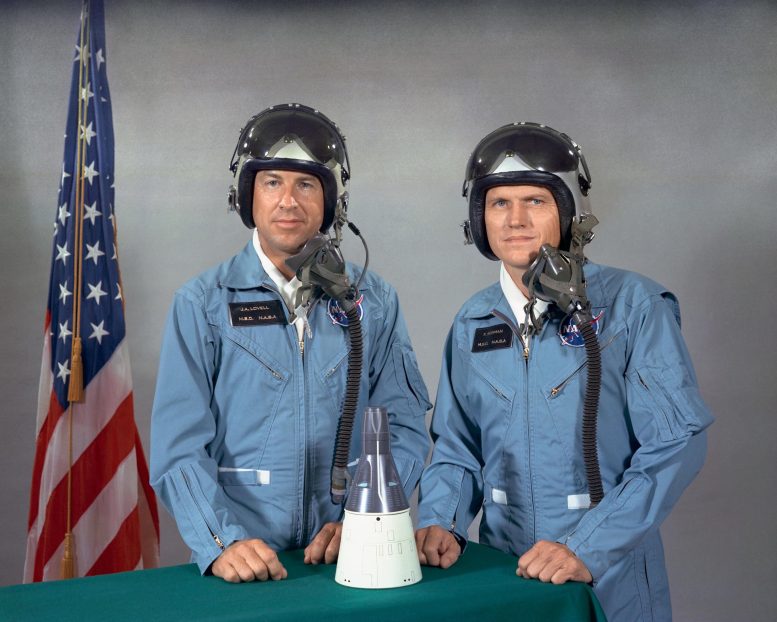
Astronauts Frank Borman (right), command pilot, and James A. Lovell Jr., pilot, are the prime crew members for NASA’s Gemini-Titan 7 (GT-7) mission. Credit: NASA
Frank Borman’s life was a testament to his passion for aviation and space exploration. His courage, dedication, and pioneering spirit were an inspiration to many. He leaves behind a legacy that transcends his achievements in space, encompassing his role as a mentor, leader, and visionary. His passing is a profound loss to the nation and the global community, which will forever remember him as one of the key figures who propelled humanity towards the stars.
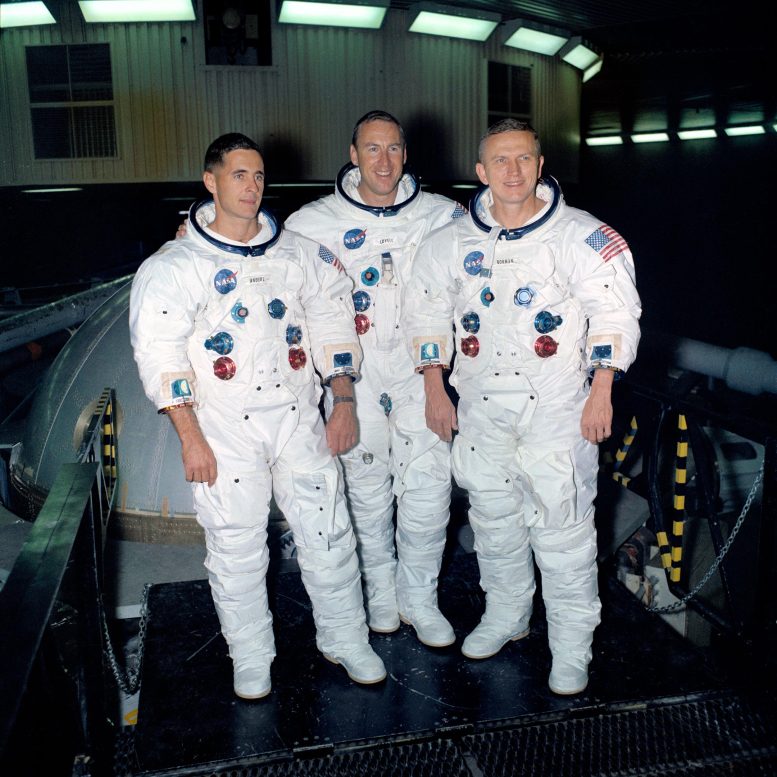
The prime crew of the Apollo 8 lunar orbit mission stands beside the gondola in Building 29 after suiting up for centrifuge training in the Manned Spacecraft Center’s (MSC) Flight Acceleration Facility (FAF). Left to right, are astronauts William A. Anders, lunar module pilot; James A. Lovell Jr., command module pilot; and Frank Borman, commander. Credit: NASA
The following is a statement from NASA Administrator Bill Nelson:
“Today we remember one of NASA’s best. Astronaut Frank Borman was a true American hero. Among his many accomplishments, he served as the commander of the Apollo 8 mission, humanity’s first mission around the Moon in 1968.
“His lifelong love for aviation and exploration was only surpassed by his love for his wife Susan.
“Frank began his career as an officer with the U.S. Air Force. His love of flying proved essential through his positions as a fighter pilot, operational pilot, test pilot, and assistant professor. His exceptional experience and expertise led him to be chosen by NASA to join the second group of astronauts.
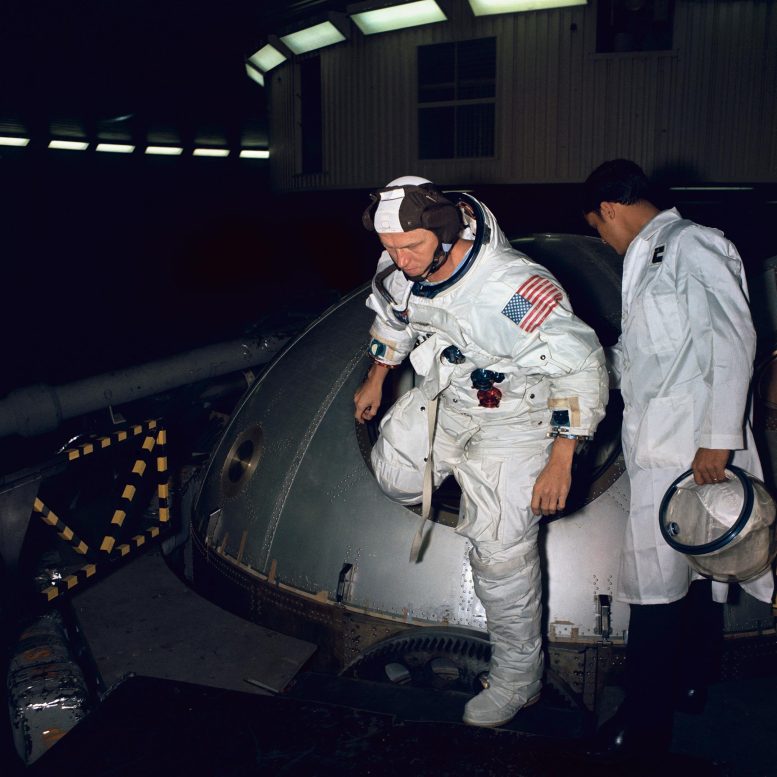
Astronaut Frank Borman, Apollo 8 commander, egresses the gondola in Building 29 after centrifuge training in the Manned Spacecraft Center’s (MSC) Flight Acceleration Facility (FAF). Credit: NASA
“In addition to his critical role as commander of the Apollo 8 mission, he is a veteran of Gemini 7, spending 14 days in low-Earth orbit and conducting the first rendezvous in space, coming within a few feet of the Gemini 6 spacecraft.
“Frank continued his passion for aviation after his time with NASA as the CEO of Eastern Airlines.
“Frank knew the power exploration held in uniting humanity when he said, ‘Exploration is really the essence of the human spirit.’ His service to NASA and our nation will undoubtedly fuel the Artemis Generation to reach new cosmic shores.”

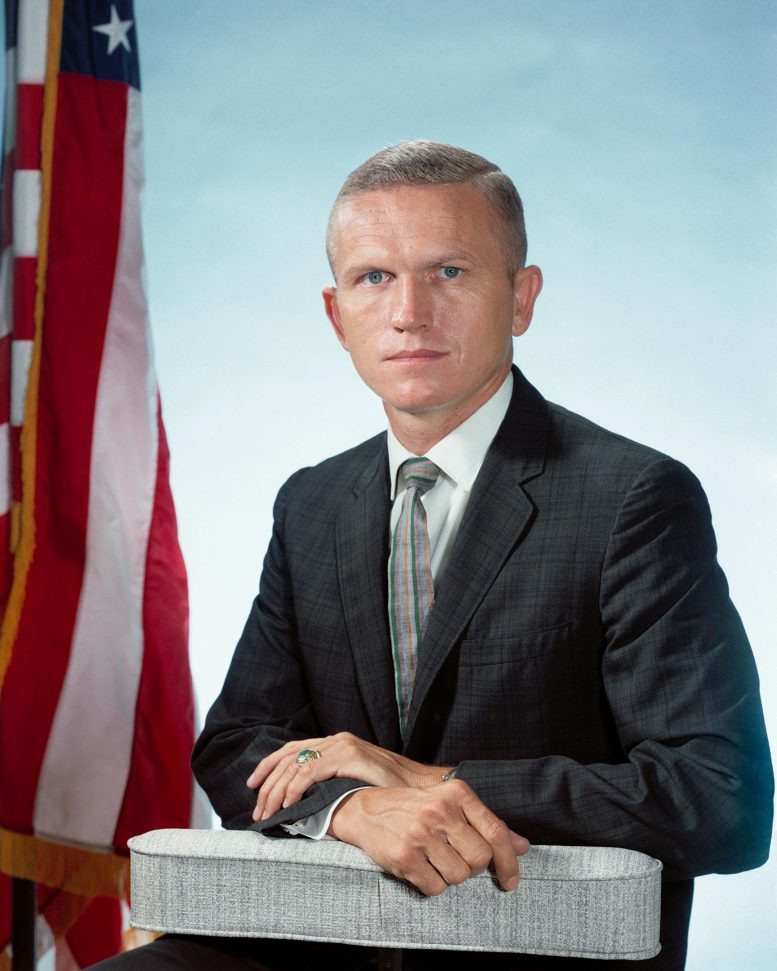








Be the first to comment on "NASA Astronaut Frank Borman, Commander of Apollo 8’s Historic Moon Mission, Dies at 95"